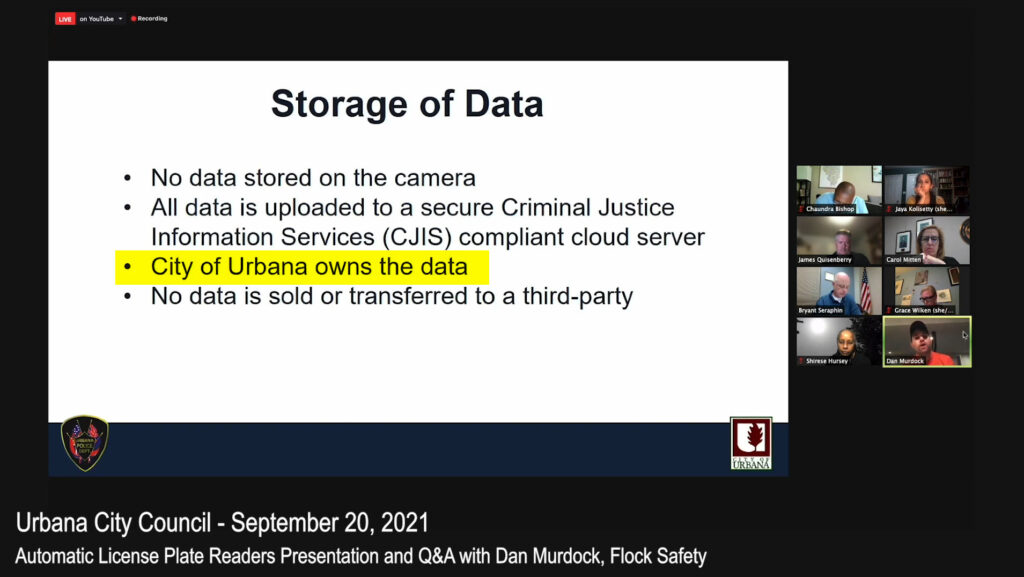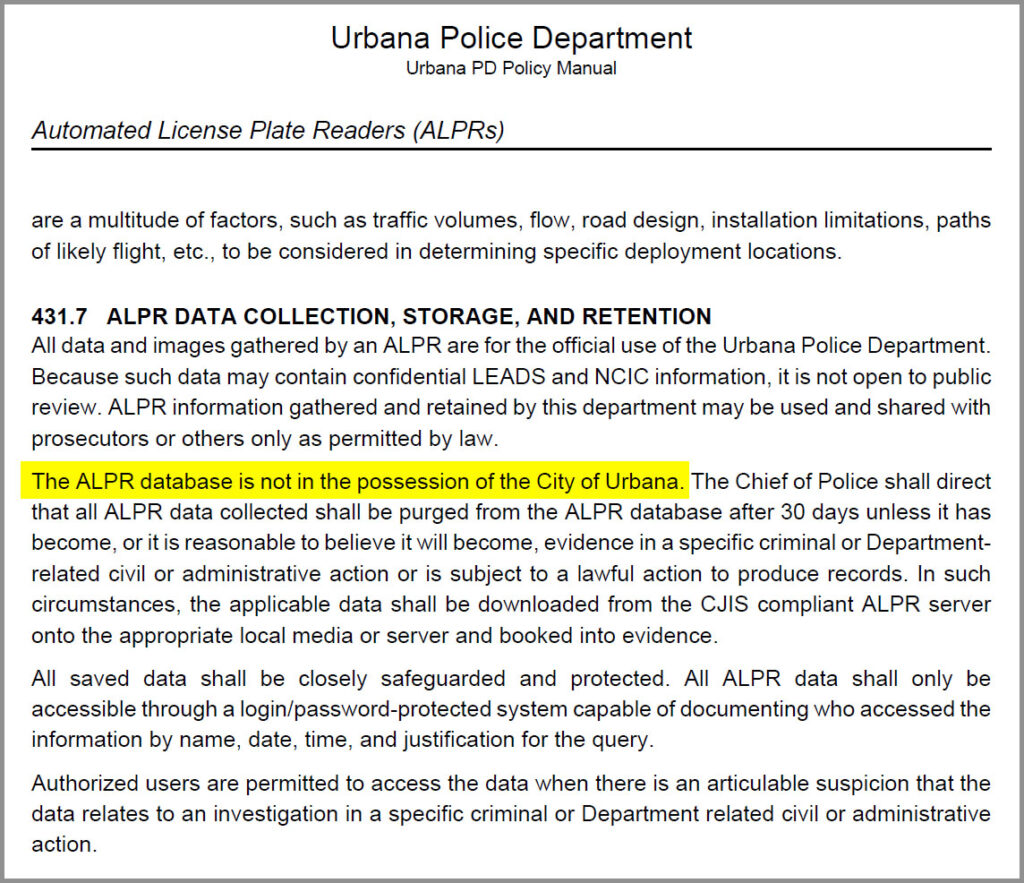
When Urbana Police Chief Bryant Seraphin and a representative from automatic license plate reader (ALPR) company Flock Safety presented to the City Council on September 20th, the issue of the ownership of the vehicle tracking data was made very clear.
In regards to the massive data set which would track the driving habits of every driver in Urbana, Flock Safety salesman Dan Murdock said that “the City of Urbana owns the data”.
Murdock not only spoke this aloud multiple times, but it was also written in a prepared slideshow which was presented to the Council and to the public. A full quote from Murdock is provided below, as well as a video of the statement cued to begin playing at the correct time.
“Urbana is buying the data from Flock – that is what the purchase is. You’re not buying the cameras, you’re buying the data coming out of the cameras. So the City of Urbana owns the data, not Flock. So there is no reselling this data to third parties like analytics companies or engineering companies or whatever – that is not Flock’s business model, because you own the data not Flock.”
Similar claims about Urbana having full ownership of the data have been repeated at subsequent meetings and discussions.
Interestingly, the Urbana Police Department (UPD) is now attempting to completely reverse the claim that the City would own the ALPR data. In a proposed ALPR policy forwarded to the City Council by Chief Seraphin, the UPD claims that “the ALPR database is not in the possession of the City of Urbana.”

This maneuver appears to be an attempt to build a foundation for denying Freedom of Information Act (FOIA) requests related to the ALPR data. Check CU has already demonstrated that Chief Seraphin has made a series of false claims about ALPR data being exempt from FOIA.
If the UPD thinks that they can deny FOIA requests for ALPR data based on the insertion of a functionally false claim about ownership, they are likely to once again find themselves on the losing end of a FOIA lawsuit. The FOIA law begins with one simple presumption:
“All records in the custody or possession of a public body are presumed to be open to inspection or copying. Any public body that asserts that a record is exempt from disclosure has the burden of proving by clear and convincing evidence that it is exempt.”
Chief Seraphin intends to circumvent this presumption by claiming that the City doesn’t possess the data. However, simply inserting such a line within police policy does not change the fact that the City of Urbana functionally owns the data. Even if it did, the FOIA law already contemplates such a situation and makes very clear that such a data set is still subject to FOIA:
Section 7(2) “A public record that is not in the possession of a public body but is in the possession of a party with whom the agency has contracted to perform a governmental function on behalf of the public body, and that directly relates to the governmental function and is not otherwise exempt under this Act, shall be considered a public record of the public body, for purposes of this Act.”
